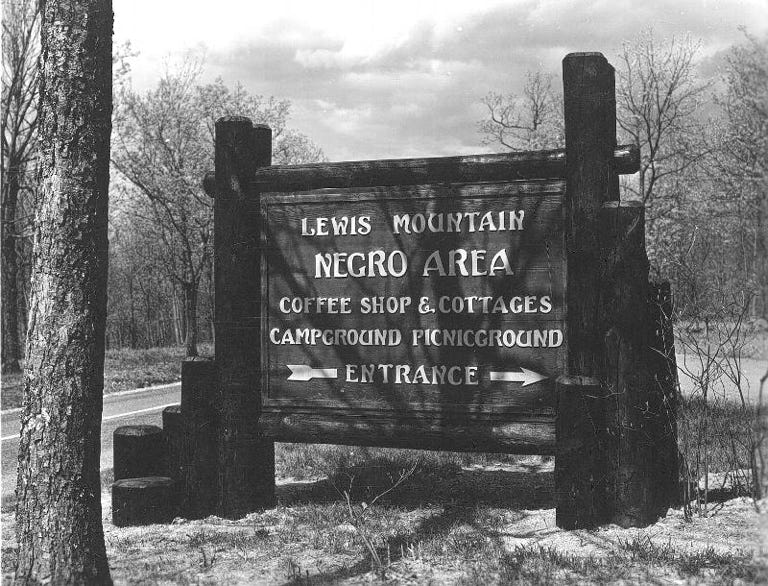
The author of this article in the Boston Globe, promoting a book about the importance of recognizing the contributions people of color have had in the conservation movement, offers a countering view to the stereotype that “Black people don’t do the outdoors.” The stereotype has persisted over the years because there is a historical and sociocultural context to that view. And research by the National Park Service (link to PDF report) shows that African Americans are significantly underrepresented in the National Parks (7% of visitors versus 13.2%). As with most family-oriented activities, the love for (or fear of) the outdoors can be passed down from generation to generation. With African-Americans, there was outright exclusion from National Parks as far as the 1930s and then segregated facilities through 1950 (link).
That means that there are folks alive right now who remember that Blacks were often not welcome in the National Parks and that might have made it less likely for them to consider National Parks as a viable family activity for their children. That coupled with a more urbanized existence, as well as the rapidly-disappearing natural space adjacent to high density communities of color (link) makes it less likely that African Americans will consider the outdoors as a potential recreational opportunity. As the author above points out, these are generalizations and clearly, people of color have been enjoying the outdoors since the founding of this country, but there are clearly demographic and sociocultural conditions which have limited their participation overall. As the National Park Service turns 100, an effort is being made to highlight the oft-ignored contributions that people of color have made to conservation efforts and to make a concerted effort to encourage everyone to participate in the national treasures of this country.
Source: https://www.bostonglobe.com/…

Source: National Park Service